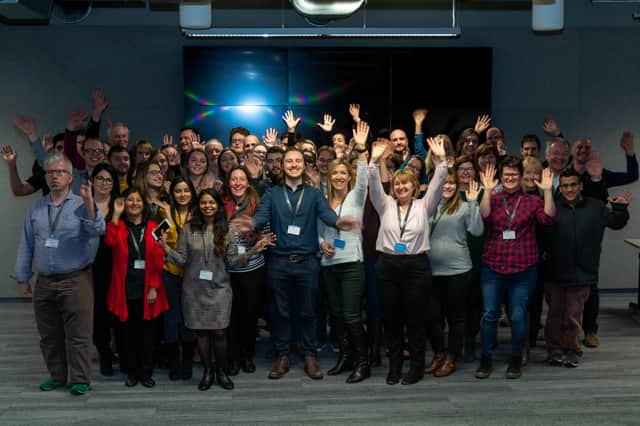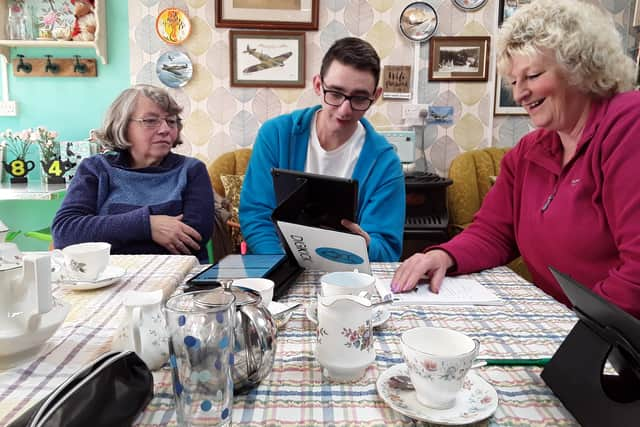Organisations to come together to end Birmingham’s digital divide


A new digital inclusion project has been set up to ensure Birmingham’s most vulnerable and excluded citizens will have better access to online services.
Birmingham City Council has brought together 40 different organisations to ensure people have access to equipment, network connectivity and skills for improving their quality of life, developing their careers and saving money.
Advertisement
Hide AdAdvertisement
Hide AdWhile statistics show the inclusion rate in Birmingham is increasing, this only captures basic internet use and does not take account of affordability of data, digital skills or regular access.
Digital access for all
One of the organisations the council is working with on the project is AbilityNet, a national charity which works predominantly with older and disabled people.
Speaking to BirminghamWorld, Amy Low, service delivery director for the charity, said: “When you look at digitally excluded people there is a high proportion in the over 65 age bracket who may have problems with vision and challenges to be able to get online.
“So we provide free support to people who can follow our volunteer service to get online, and we can identify any problems that they’re having, teach them basic tech skills like sending emails and setting up accounts, but we also provide advice on how deal with some of the settings.
Advertisement
Hide AdAdvertisement
Hide Ad“There are also many families who have more than one child who might be sharing a device and the parents might not have had digital skills before so that’s an area where we can help as well - we just want to make sure that inexperienced, older and disabled people in the city are getting an equal level of access to digital as everybody else in the city.”
‘Together we can make a difference’
The council is also working with the Birmingham-based computer club Digikick.
Chris Laband, the director of Digikick, said: “One in five people don’t have basic internet skills which leaves them excluded, so we run a variety of different projects to help people get online safely so they can start using the internet regularly to better their lives.
“As an organisation we’re not going to make a huge amount of difference in the city and it’s only when people are coming together like this to pull resources when we can all make a big difference.”
Advertisement
Hide AdAdvertisement
Hide Ad

Councillor Brigid Jones, Deputy Leader of Birmingham City Council, said that the Covid-19 pandemic has exacerbated the ‘digital divide’, meaning those who were already disadvantaged have become even more excluded.
“Digital inclusion isn’t just about getting the latest smartphone,” she said.
“It is about ensuring people are connected and citizens, especially the most vulnerable, have access to online services.
“Digital exclusion speaks to some of the most profound inequalities in our society and now is the time to take collective action as a city to tackle the challenge.
Advertisement
Hide AdAdvertisement
Hide Ad“To tackle this we must work as a city – public, private, and voluntary sectors to ensure everyone has the confidence, capacity and skills to access online information and live their lives to their full potential.”
The digital strategy aims to ensure that:
- Every citizen has easy access to an internet enabled device such as a computer, laptop, or smartphone, ideally within their own household.
- There are city‐wide, locality-based and online educational sessions, providing tuition to enable people to develop their digital skills, increasing their confidence, motivation and well‐being.
- There is targeted intervention and effective signposting to facilitate end-to-end learning opportunities for all citizens to ensure they can maximise and build on their skills, removing the barriers for those that are most vulnerable or excluded.
- Citizens develop a digital by choice preference, creating simple digital solutions to enable citizens to access council services using their device of choice and at a time of their choosing.
- Digital and data poverty is minimized so that digital inequality no longer persists, and everyone has an equal opportunity to access Council services and activities online.
- The council works with city employers to highlight the importance of digital skills and inclusion and their role in supporting citizens, communities and their workforce
Comment Guidelines
National World encourages reader discussion on our stories. User feedback, insights and back-and-forth exchanges add a rich layer of context to reporting. Please review our Community Guidelines before commenting.
